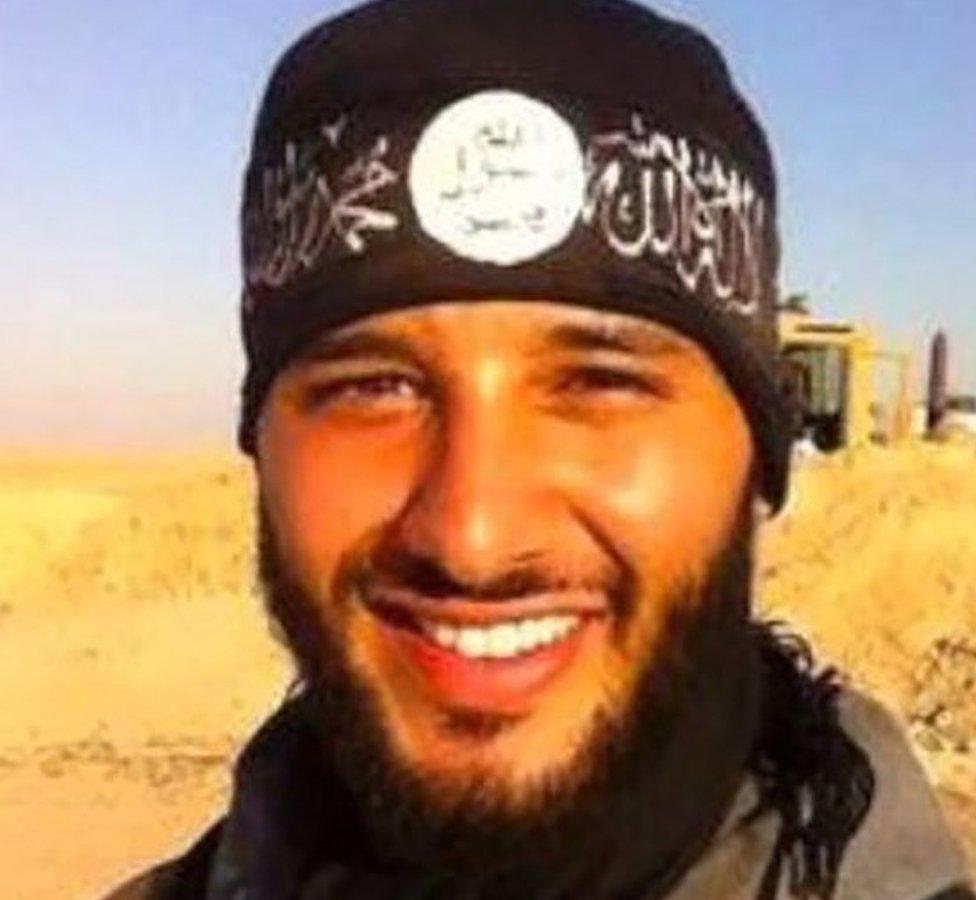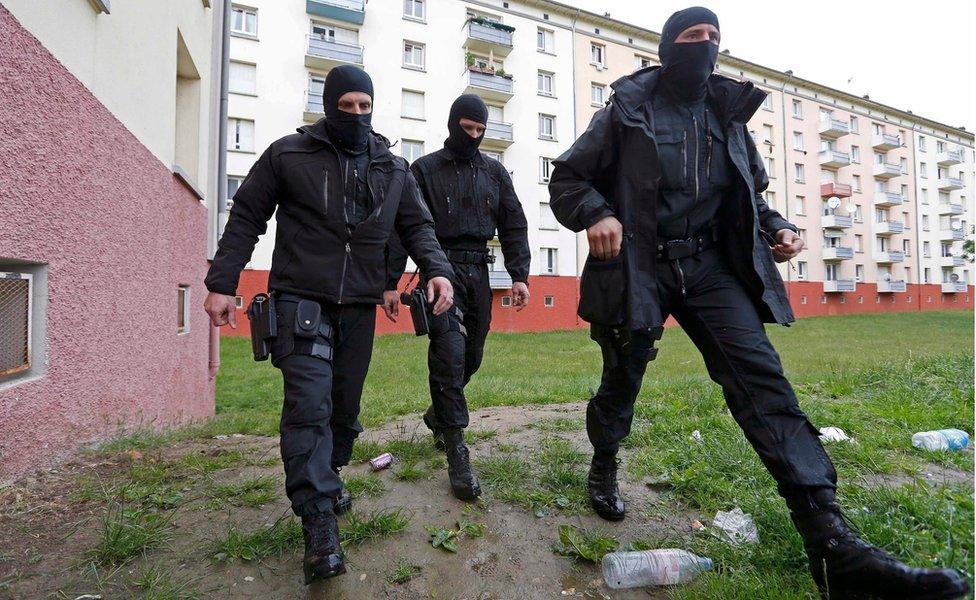Who was third Bataclan attacker Foued Mohamed-Aggad?
- Published

Foued Mohamed-Aggad is believed to have travelled to Syria in late 2013
Police in France say they have identified another of the men who killed 130 people in attacks in Paris last month.
Reports in French media have named him as Foued Mohamed-Aggad, 23. He was one of three gunmen who attacked the Bataclan concert venue, killing 90.
All three attackers, who were wearing suicide vests, died.
A lawyer for Mohamed-Aggad's mother said she received a text message from Syria last week saying her son had died in the attack. DNA tests on remains found at the Bataclan and on Mohamed-Aggad's relatives were a match.
In the past few hours, a picture has emerged of who Mohamed-Aggad was, and how he found himself acting on behalf of the so-called Islamic State (IS).
Who was Aggad?
Raised in Wissembourg, a town of almost 8,000 people near the eastern French city of Strasbourg, Mohamed-Aggad was one of four children, external - two sisters and a brother, Karim, 25, who, like Foued, travelled to Syria.
His father, Said, and mother, who was originally from Morocco, separated in 2007, according to Le Parisien, external.
The France 2 network says he was known to police in Strasbourg, but only for petty crimes. None of the reports on Mohamed-Aggad's background indicate that he held a job before leaving for Syria.
Journey to Syria
A number of reports say Mohamed-Aggad left for Syria as part of larger group from a district of Strasbourg, La Meinau.
One report last year said the area was once known as a no-go area, but had improved in recent years. Despite this, the youth unemployment rate in La Meinau is close to 30%.
Le Monde reports that he regularly met friends at a shisha bar in Kehl, external, a small town across the German border from Strasbourg. It was there, the newspaper says, that the group of 10, including Karim, plotted their journey to Syria.
Their journey was reportedly facilitated by an alleged French jihadist recruiter, Mourad Fares, external, who was later arrested in Turkey in 2014.
His journey did not quite go to plan, Le Monde says, as Mohamed-Aggad missed his flight in December 2013, leaving others waiting for him in Turkey.
France Info claims he told his family he was going on holiday to Dubai, external. Members of the group later told investigators they went to take part in a humanitarian mission, not to fight for IS.
Inside Syria

Raids were held in La Meinau after members of Mohamed-Aggad's group returned to France
After entering Syria, the group travelled to Aleppo, then to the de-facto IS capital, Raqqa, before moving further east, Le Monde reports.
French media say two of the Strasbourg group, brothers Mourad and Yassine Boudjellal, were killed at a checkpoint early last year.
In the following months, every other member of the group apart from Foued returned to Europe - and were all arrested. Police were seen raiding flats throughout La Meinau. Those arrested are awaiting trial, including Karim Mohamed-Aggad.
By this point, France 2 says, Foued was on the radar of the French security services, and, according to the Dernieres Nouvelles d'Alsace newspaper, external, was also subject to an Interpol arrest warrant.
There are reports he had a wife in Syria, but it is not known if he was married while in the country, or whether his wife followed him there.
Beyond Syria
It is not clear when, or how, Mohamed-Aggad returned to France. He went out of his way to hide his location when in contact with his parents.
His father's last contact with him was via webcam in the summer. "As per usual, he didn't say anything about what he was doing, where he was," Said Mohamed-Aggad told Le Parisien, external.
"He would just say 'It's OK, it's OK' and spoke a lot about jihad."
His mother sent him money in the hope it would help him leave the war, Le Parisien says.
"What kind of human being would do what he did?" his father told reporters on Wednesday. "If I had known he would have done something like that, I would have killed him beforehand."